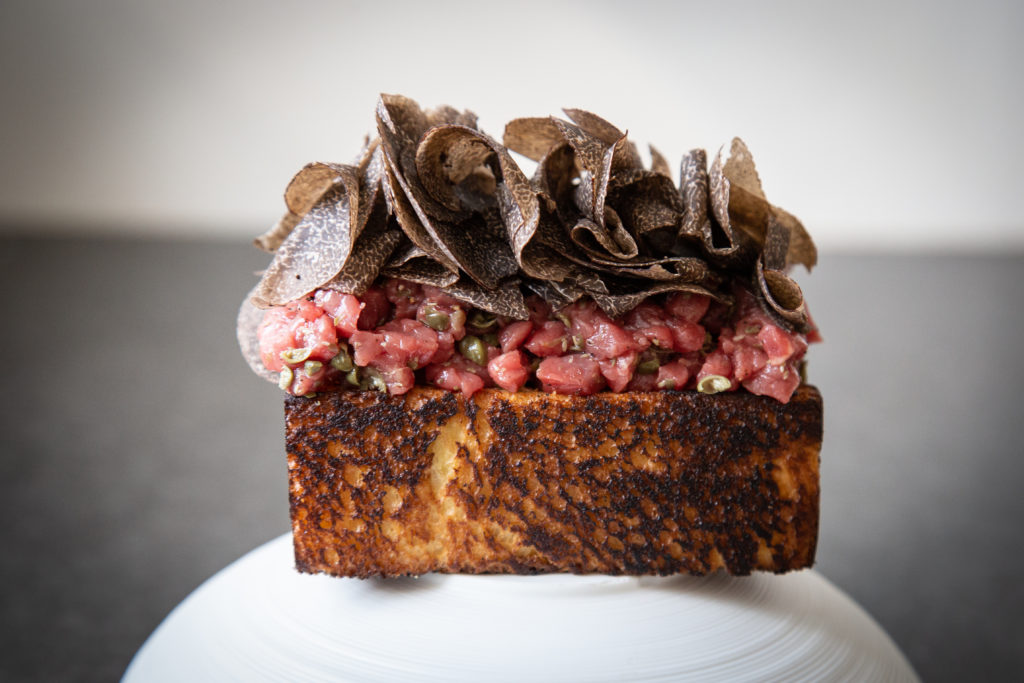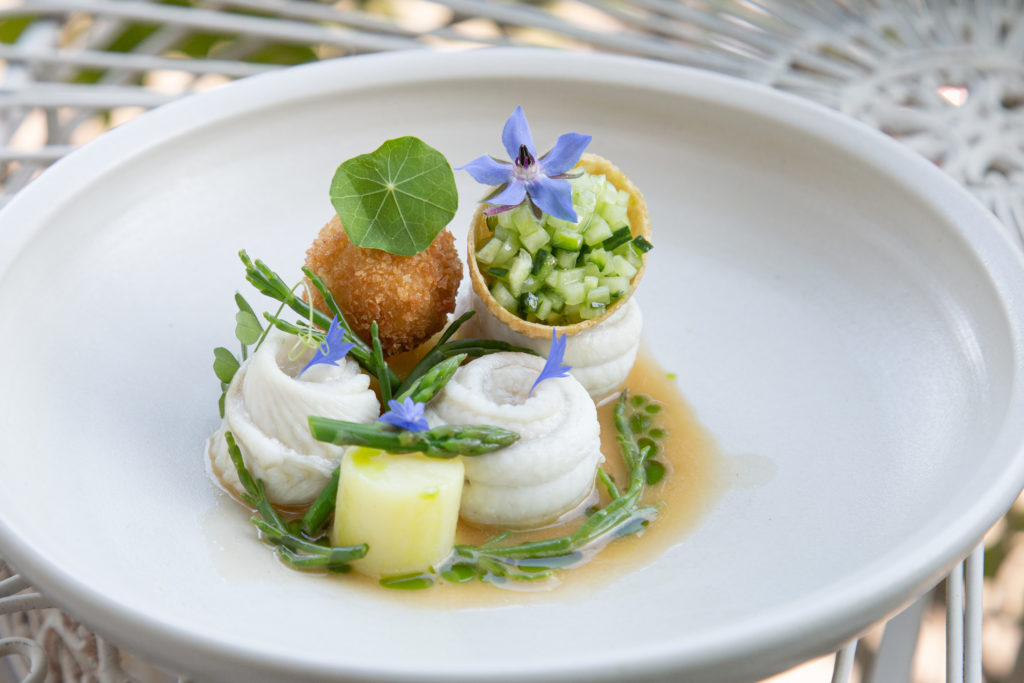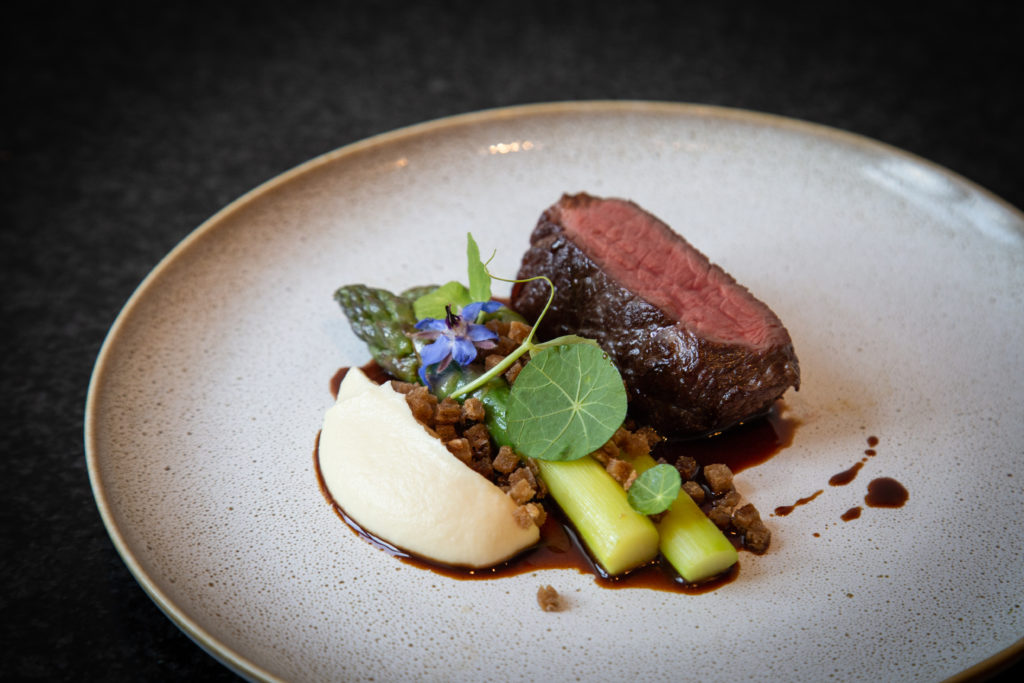Chef Name: Suresh Hegde
Age: 42
Title:
Home cook; Blogger behind Eater’s Manifesto
How old were you when you started cooking professionally?
Although I’ve been blessed to have been to some really outstanding restaurants, my experience is strictly from the dining room only, and other than when we are allowed a tour of a kitchen after dining, I have never stepped foot in a professional kitchen. My experience with cooking has therefore only ever been to experiment at home. I have a great amount of respect for people who do cook for a living however, I can only imagine how hard it really is.
What’s your earliest and fondest first memory of food?
We always ate well as kids growing up. Both my parents were good cooks and both liked to eat. My Mum cooked a lot of Indian food from recipes handed down from my Dad’s side of the family, but she could also turn her hand to Cantonese, Greek, Italian, you name it. My Dad took a keen interest in decent produce and regularly came home from work via the butcher or fishmonger. He had a penchant for the cheaper cuts that are often overlooked these days, so we ate a lot of offal, and I have fond memories of kippers for breakfast at the weekend. I wasn’t a particularly fussy eater so generally went along with it quite happily. I can, however, quite vividly remember being faced with milt for the first time. It wasn’t so much the concept that appalled me but the creamy texture, which to this day I struggle a bit with. My Dad wasn’t the kind of man to let food go to waste though, so I was ordered to stay at the dinner table until I had managed to finish my plate. It took a while.
Which chefs inspire you most and why?
I have always been interested in cooking. I remember making meringues with my Mum at a very young age and cooked a lot of quite elaborate but thrifty spreads when I first left home and went to university. However, something really clicked one Friday night in my early twenties when after work I took the train with a couple of friends to Bray to have dinner at The Fat Duck. We made our way through all the classics (snail porridge, bacon and egg ice cream, etc.), with an increasing feeling of utter awe. It was unlike anything I’d ever experienced. I remember at one point literally walking into Heston as I stumbled around trying to find the toilet (doing the wine pairing on a menu that long can be a bit dangerous!). To this day he is probably the most influential chef to me, not because I’m particularly interested in molecular technique, but because he first raised the topic about the wider experience of eating. I’m far more influenced technically by classical French cuisine, but Heston really taught me to think critically about food, taste, and what it is that makes things pleasurable.
What are your two favourite cookbooks and why?
I don’t really use cookbooks that much as following a recipe robs you of an opportunity for creativity, however, I do regularly pick up Michel Roux’s Sauces and I am very fond of Richard Olney’s Simple French Food which I think is one of the best cookbooks ever written.
Otherwise, I love everything Nigel Slater and Simon Hopkins write but mainly to read like a novel rather than for recreating dishes.
Which two ingredients could you not live without?
We get through a lot of eggs as a family, and I don’t think I would be a very happy man if I couldn’t have some butter once in a while.
What is your favourite comfort food to cook at home?
I’ve spent a lot of time over the last few years learning how to make really carefully crafted versions of dishes that we often wrongly consider fast food. So I like making pizzas from scratch, and there is no substitute for a lovingly made burger – a decent home-made brioche bun, patty of hand-chopped ribeye, and nothing else but seasoning, sweet onion, mustard, and a dash of tabasco.
I am also a big fan of anything slowly cooked for hours. There is little more comforting than a well-made stew from some really cheap cuts. Sadly both my wife and daughter are vegetarian and I’m trying to reduce meat intake so I don’t get the opportunity to make these kind of dishes often these days.
If you could eat at any Michelin star restaurant in the world today, where would it be and why?
The first ones that come to mind right now are Etxebarri or Frantzén, but you’d probably get a different answer if you asked again next week.
I’m also planning to make a tour of some really exceptional restaurants in the north of England when I next get an opportunity. I’m dying to visit Sat Bains, Raby Hunt, L’Enclume, and Mana.
And who would you take as your guest?
My wife and daughter. Apart from the fact they are my favourite people, it’s always interesting to dine with them as you get to see what these places can produce just using vegetables. I really think that is one of the best ways to see if the kitchen can really cook. You’d be shocked at some of the stuff we’ve been given at world-class restaurants when asking for a vegetarian menu. One very famous place in San Sebastian that will go unnamed gave up after one course of the eight-course vegetarian menu and just gave my wife a huge bowl of truffle pasta.
What inspired you to start Eaters Manifesto and the why behind it?
Although the love of food has been with me seemingly since birth, this particular journey into fine dining, cooking as a creative outlet, and sustainability indeed started as an Instagram page. My wife had collected photos of dishes I had made her over the years and started to post them. I myself had for some time also been taking iPhone shots of inspiring restaurant plates, and it seemed fun to try to combine the two into a gallery of creative food. At that point it was mostly as a record for ourselves and maybe a few close friends, with little real thought being given that anyone else would be much interested.
The whole process of cooking, from being inspired by ingredients, through the creative process of manipulation in the kitchen, and the artistic opportunity to plate, photograph and write about dishes, continues to bring me a great deal of joy. And as my waistline can attest to, I still very much enjoy eating the results.
How have you developed all your culinary skills and techniques to what they are today, executing beautiful dishes to a trained chef and restaurant standard?
I appreciate it’s a pretty annoying answer, but the truth is it’s just practice. Simply cooking a lot is the best way to improve. You can see this progression very clearly if you scroll back though my page. I’m not really happy with the way I cook now but looking at dishes I made three years ago is truly cringe-worthy!
However, it’s more than just working out and then honing techniques. I also think you can teach yourself to be creative, and that also stems both from practice and from simply thinking about food a lot.
Eating at decent restaurants is a great way to experience new tastes and techniques to try out back in the home kitchen, but Instagram is also a great platform for inspiration – seeing what chefs are doing, thinking about flavour combinations on posts, and observing plating styles. It’s also wonderfully democratising, you’d be amazed how open world-class chefs can be to sharing ideas and techniques if you ask politely.
You are clearly also very good with your food photography; is this another area in which you’re self-taught and have honed the skill over the years?
One of the most interesting things about the Instagram page is that it indeed offered a much broader opportunity to learn new skills than just cooking. Working out how to take a photo and how to deal with lighting was an obvious first step, but it soon also evolved into being about writing and then website design. Now I’m trying to write a book and am finally being forced to write down some recipes, so I’ve also learnt just how much work goes into a cookbook if you aren’t supported by stylists and home economists.
How has the pandemic affected you? And how did you adapt and evolve throughout?
Being an amateur, the pandemic has rather weirdly had a positive effect on my cooking. I’ve worked from home for more than a year now and that means I can be a lot more flexible in how I manage my day which means I cook more often.
Can you share any wisdom from the experience so far with others? Have you changed? Has your cooking changed?
I think my cooking has evolved much like many self-taught hobby cooks before me. You start obsessed with intricate and complex processes and doing as much as you can on each plate, before eventually realizing that most often, less is more. Simplicity and letting the quality of ingredients really shine is one of the most difficult things to really do well and consistently in the kitchen. During the pandemic I’ve seen that trend towards simplicity and comfort accelerate. You saw the same thing in the New York restaurant scene after 9-11 and I think it’s something we’ll see again in restaurants for some time post COVID.
Suresh Hegde is a home cook and blogger behind Eaters Manifesto
Website: www.eaters-manifesto.com
Instagram: @eatersmanifesto




